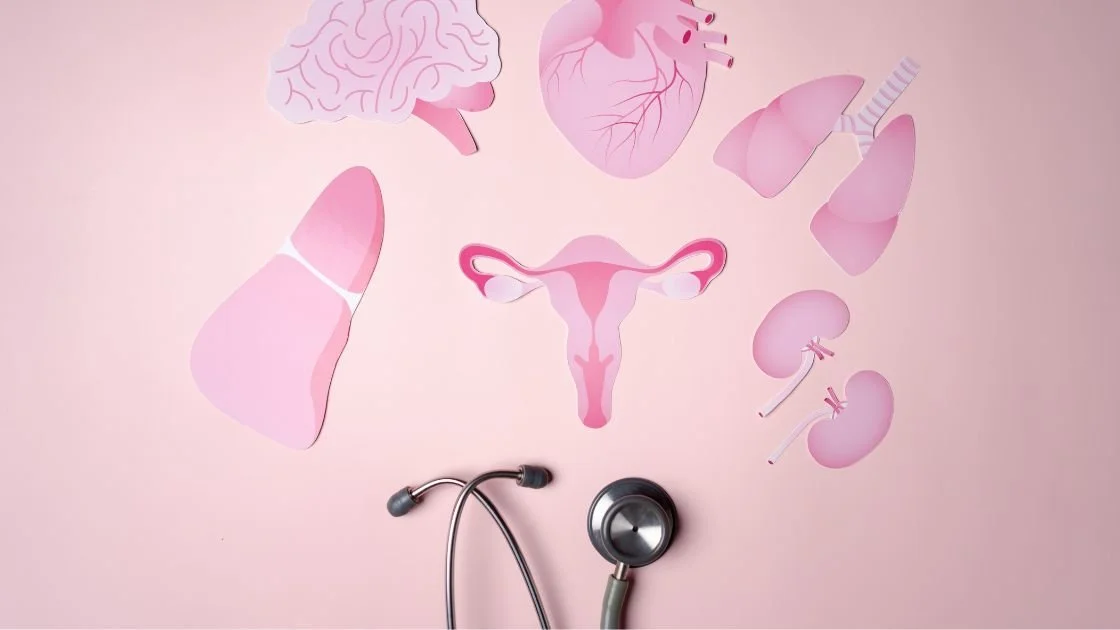Everything You Need to Know About Crohn's Disease in Women
Crohn's disease is a chronic inflammatory bowel disease (IBD) that can affect any part of the gastrointestinal (GI) tract, causing symptoms that can vary in severity from person to person. While the disease affects both men and women, women may face unique challenges related to their reproductive health, menstruation, and pregnancy. Understanding how Crohn’s disease manifests and is managed in women can lead to better treatment outcomes and improved quality of life.
What is Crohn’s Disease?
Crohn’s disease is characterised by inflammation of the digestive tract, often resulting in abdominal pain, severe diarrhoea, fatigue, weight loss, and malnutrition. The disease can affect different parts of the GI tract, with common areas being the small intestine and colon. Crohn's can be unpredictable, with periods of active symptoms (flare-ups) followed by times of remission.
Symptoms of Crohn’s Disease in Women
Women with Crohn's disease may experience general symptoms like:
Abdominal pain and cramping
Persistent diarrhoea or constipation
Unexplained weight loss
Fatigue and weakness
Malnutrition
However, women may also face certain gender-specific issues, including:
Menstrual Changes: Some women with Crohn's experience irregular or more painful periods during flare-ups. Hormonal fluctuations can also impact Crohn's symptoms, with many women reporting worsening symptoms just before or during menstruation.
Anemia: Due to blood loss from rectal bleeding and heavy menstrual cycles, women with Crohn’s disease are more susceptible to iron-deficiency anemia, which can worsen fatigue and weakness.
Sexual Health: Pain during intercourse (dyspareunia) is common in women with Crohn's, especially if the disease affects the areas around the rectum or anus. This can also lead to decreased sexual desire or discomfort with intimacy.
Crohn's Disease and Fertility
Women with Crohn’s disease may worry about how the condition impacts fertility. Generally, women with Crohn’s who are in remission can have normal fertility rates, but active disease or previous surgeries can sometimes affect fertility. For instance:
Active Disease: Inflammation and nutritional deficiencies during flare-ups may temporarily reduce fertility. Active disease can also increase the risk of miscarriage or preterm labour.
Surgical Considerations: Some women with Crohn’s undergo bowel resections or other surgeries, which may affect the ovaries or fallopian tubes, making conception more difficult.
Crohn’s Disease and Pregnancy
One of the most common concerns for women with Crohn’s is how the disease will affect pregnancy. Fortunately, many women with Crohn’s go on to have healthy pregnancies, especially if their disease is well-managed. Key factors to consider include:
Disease Remission: The best time to conceive is when Crohn’s is in remission, as active disease can lead to complications such as preterm birth, low birth weight, or miscarriage.
Medications During Pregnancy: Some medications used to manage Crohn’s are considered safe during pregnancy, but others may need to be adjusted or discontinued. It’s important to work closely with both a gastroenterologist and an obstetrician to ensure the treatment plan is safe for both the mother and the baby.
Nutritional Support: Proper nutrition is critical during pregnancy, especially for women with Crohn’s who may have trouble absorbing nutrients. Regular monitoring of vitamin and mineral levels, including folic acid, iron, and vitamin D, is essential.
Treatment Options for Crohn’s Disease in Women
Managing Crohn's disease requires a personalised approach, with treatment aimed at reducing inflammation, controlling symptoms, and preventing flare-ups. Common treatment options include:
Medications: Anti-inflammatory drugs, immunosuppressants, and biologics (such as TNF inhibitors) are often prescribed to reduce inflammation and control symptoms. Corticosteroids may be used for short-term relief during flare-ups.
Surgery: In cases where medication fails to control symptoms, surgery may be necessary to remove damaged portions of the GI tract. Women with Crohn’s should be aware that surgeries may affect reproductive organs, so fertility and reproductive planning should be discussed with their doctor.
Lifestyle Adjustments: Dietary changes, stress management, and regular exercise can help manage symptoms. Women with Crohn’s should focus on maintaining a balanced diet rich in essential nutrients, avoiding foods that trigger flare-ups, and managing stress through activities like yoga or meditation.
Managing Crohn’s Disease in Daily Life
Living with Crohn’s disease can be challenging, but with proper management, women can lead full, active lives. Here are some tips for daily management:
Stay Hydrated: Diarrhoea and malabsorption can lead to dehydration, so it’s important to drink plenty of fluids throughout the day.
Track Symptoms: Keeping a symptom diary can help you identify triggers, track the effectiveness of medications, and provide valuable information to your healthcare provider.
Seek Support: Crohn’s disease can take a toll on emotional health, particularly when it comes to relationships and self-esteem. Support groups, therapy, and open communication with loved ones can help women manage the emotional challenges of living with a chronic illness.
Crohn’s disease presents unique challenges for women, especially in relation to reproductive health, menstruation, and pregnancy. However, with the right treatment plan, many women can manage their symptoms effectively and live fulfilling lives. If you suspect you have Crohn’s disease or are experiencing symptoms, it’s important to seek medical care early for a proper diagnosis and treatment.
Take control of your health today with a comprehensive assessment at Elysian Women’s Health. Our caring, expert team is here to support you with personalised care tailored to your unique needs.


